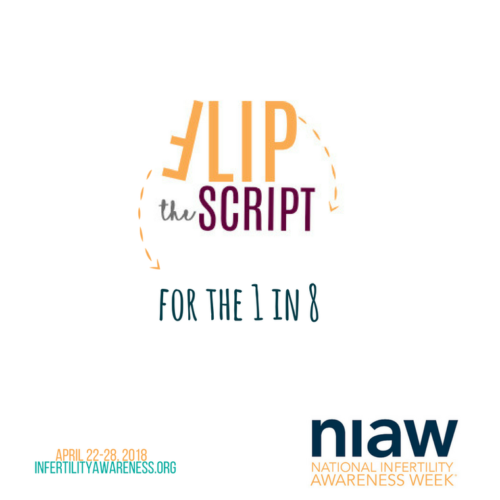April 22 – 28 is National Infertility Awareness Week. If you are in the midst of struggling with infertility, it’s easy to get overwhelmed with all the information that you may come across when you try to research more about your condition. We wanted to set the record straight about a few common myths that you may have heard regarding infertility and its treatments:
MYTH #1: Infertility is a female problem
Actually, fertility troubles are split three ways: about one third of the time is due to female causes, and another third is due to male issues. The remaining one third is due to a combination of both male and female factors, or may be due to unknown causes.
The stress to grow a family can impact both partners too, though the impact is often expressed in different ways. Infertility may also have negative effects on family members and friends of an affected individual or couple, leading to strained interpersonal relationships or family dynamics.
MYTH #2: Infertility is an older woman’s problem
Young, healthy women under the age of 30 should have no problem getting pregnant, right? Infertility is just a problem for women who waited later in life to try to have children.
Wrong. Infertility is caused by a wide variety of factors that can sometimes affect women and men in their early reproductive years. Conditions like polycystic ovarian syndrome (PCOS) and endometriosis are common in young women and often lead to issues with fertility. Other medical conditions like autoimmune disease or cancer may also have important effects on fertility. Environmental and behavioral factors can play a role, too.
The truth is that not all older women will have difficulty conceiving, and not all young couples will become pregnant easily.
MYTH #3: If you just relax, it will happen
Everyone has a story about a family member or a friend or a friend of a friend who just suddenly got pregnant after years of trying because they “relaxed.”
While feelings of stress and anxiety are common among individuals with infertility, there is no scientific evidence to suggest that stress reduction will lead to pregnancy. No amount of relaxing will overcome issues like endometriosis, PCOS, or a low sperm count. Couples who have been trying for greater than 12 months without success (or 6 months for women over 35) should consider seeing a specialist to learn more about their options for further evaluation and treatment.
MYTH #4: If you are infertile, you’ll need IVF
A wide range of options for treating infertility exists, and our providers will take both your medical needs and personal preferences into account when helping to determine what treatment plan makes the most sense for you as an individual. In addition to IVF, treatment options for infertility may include medications, hormone therapy, lifestyle changes, surgery, and more. While IVF is an important tool in the modern treatment of infertility, in most cases, it is not the only option that can lead to a successful outcome.
MYTH #5: Infertility is a medical condition, so treatment is covered by insurance
Insurance plans vary widely from state to state and even from plan to plan. Group plans offered by employers may offer varying degrees of coverage. Our financial counselor will help you understand the details of your coverage when you come to our office, or you can talk with your plan administrator to learn more in advance.
If insurance does not cover treatment or leaves you with residual expenses, a variety of options for financing treatment are available. A number of discounts and special programs are available at our center, and we work with a network of industry partners that offer grants and loans for fertility treatment assistance.
The TRUTH
The truth is that one in eight couples struggle with infertility, so chances are you or someone you know will be affected by this devastating condition. It is important to know that local resources and support are available. Our team is here to help you sort through your options. Call us at (502) 996-4480 or visit us online to learn more or schedule a consultation with one of our specialists.

